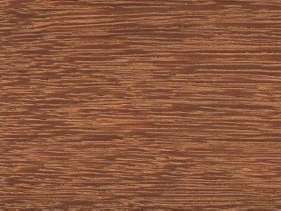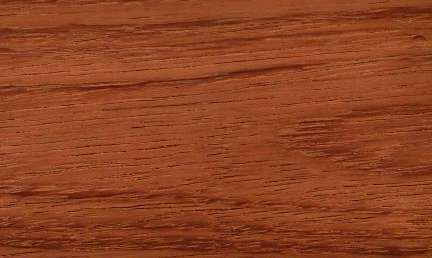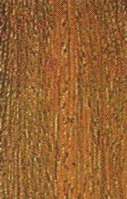  
Thongbueng (Koompassia malaccensis)
Family: Leguminosae
Common names: Ampas, Bengaris, Berniung, Empas, Enggaris, Enggeris, Garis, Gemaris, Gembris, Gemeris, Goraci, Hampas, Impas, Inggeris, Kampas, Kayu batu, Kempas, Kempas angin, Kempas rawang, Kompas, Kumpas, Madang koran, Mengerih, Mengeris, Menggaris, Menggeris, Menggeris rawang, Menggeris talang, Menggris, Mengris, Ngeris, Ngeris abang, Njari, Nyari, Oempas, Pa, Pah, Paniasi, Sabanting, Tanggaris, Thongbeng, Thongbueng, Toealang ajam, Toemaling, Tumaling, Turturan batu, Umpas
Distributed in: Brunei, Indonesia, Malaysia, Thailand (Oceania and S.E. Asia)
Distribution overview: Thailand, Indonesia (Sumatra), the Riau Archipelago, Bangka, Belitung, Borneo Peninsular Malaysia, Sarawak and Sabah. Found in lowland forest, peat and freshwater swamp, occurring from sea-level up to 600 m.
Common uses: Agricultural implements, Bedroom suites, Boat building (general), Boxes and crates, Bridge construction, Building construction, Building materials, Cabin construction, Cabinetmaking, Chairs, Charcoal, Chests, Concealed parts (Furniture), Construction, Core Stock, Crossties, Desks, Dining-room furniture, Domestic flooring, Door, Dowell pins, Dowells, Drawer sides, Exterior trim & siding, Exterior uses, Factory construction, Factory flooring, Fine furniture, Floor lamps, Flooring, Flooring: commercial heavy traffic, Flooring: industrial heavy traffic, Fuelwood, Furniture , Furniture components, Furniture squares or stock, Furniture, Hatracks, Heavy construction, Joinery (external): ground contact, Joinery, Kitchen cabinets, Light construction, Living-room suites, Marine construction, Mine timbers, Office furniture, Pallets, Paneling, Parquet flooring, Piling, Plywood corestock, Plywood, Poles, Posts, Radio - stereo - TV cabinets, Railroad ties, Roofing, Rustic furniture, Shingles, Sporting Goods, Stools, Structural work, Sub-flooring, Tables, Tool handles, Vats, Vehicle parts, Veneer: decorative, Wharf construction
Environment profile: Safe in its natural habitat
Tree size: Trunk diameter is 100-150 cm
Colors: the heart isReddish brown, Yellow to golden-yellow to orangeand the sapwoodWhite, White to yellow.The grain isWavy, the textureMedium coarse to coarseand the lusterModerately lustrous
Natural durability: Susceptible to attack from termites (Isoptera), Susceptible to insect attack
Odor: No specific smell or taste
LightInduced Color Change: Darker
Kiln Schedules: Kiln Drying Rate (in days) is rather slow
Kiln Drying Rate: Very slow
Drying Defects: Slight surface checking, Slight twist/warp
Ease of Drying: Variable results.
Tree Identification: Bole/stem form is straight
Comments: Abrasive Material Content - The wood contains abnormal veins of rock-hard tissue which may interfere with machining operationsCorrosive Properties - The wood is slightly acidic and may promote corrosion in some metals under moist conditions.
Blunting Effect: Blunting effect on machining is severe
Boring: Moderately easy
Carving: Fairly Difficult to Very Difficult
Cutting Resistance: Fairly Difficult to Very Difficult to saw
Mortising: Finishes well
Moulding: Fairly Difficult to Very Difficult
Movement in Service: Fairly Difficult to Very Difficult
Nailing: Nails hold poorly, Possible if prebored
Planing: Planes well, to a good finish
Resistance to Impregnation: Resistant sapwood
Resistance to Splitting: Poor
Response to hand tools: Fairly Difficult to Difficult to Work
Routing recessing: Fairly Difficult to Very Difficult
Sanding: Sanding properties are good after grain filling
Veneering qualities: Diifficult to veneer
Turning: Turns with moderate ease
Polishing: Satisfactory; Staining: Reacts with Iron to discolour wood;
- Numerical data Metric
- Numerical data English
- Strength properties
- References
 |
 |
 |
 |
| Item |
Green |
Dry |
Metric |
| Specific Gravity |
0,64 |
0,76 |
|
| Density |
|
881 |
kg/m3 |
| Bending Strength |
868 |
1179 |
kg/cm2 |
| Crushing Strength |
62 |
75 |
kg/cm2 |
| Hardness |
|
815 |
kg |
| Impact Strength |
116 |
142 |
cm |
| Shearing Strength |
|
112 |
kg/cm2 |
| Stiffness |
164 |
186 |
1000 kg/cm2 |
| Tangential Shrinkage |
6 |
|
% |
| Radial Shrinkage |
45 |
|
% |
| Weight |
849 |
817 |
kg/m3 |
| Maximum Load |
0,84 |
1,05 |
cm-kg/cm3 |
| Toughness |
|
|
cm-kg |
| Static Bending |
584 |
687 |
kg/cm2 |
|
 |  |  |  | | Item | Green | Dry | English | | Bending Strength | 12350 | 16773 | psi | | Crushing Strength | 892 | 1068 | psi | | Density | | 55 | lbs/ft3 | | Hardness | | 1797 | lbs | | Impact Strength | 46 | 56 | inches | | Maximum Crushing Strength | 7485 | 9834 | psi | | Shearing Strength | | 1598 | psi | | Static Bending | 8310 | 9780 | psi | | Stiffness | 2340 | 2655 | 1000 psi | | Work to Maximum Load | 12 | 15 | inch-lbs/in3 | | Specific Gravity | 0.64 | 0.76 | | | Weight | 53 | 51 | lbs/ft3 | | Radial Shrinkage | 4.5 | | % | | Tangential Shrinkage | 6 | | % | | Volumetric Shrinkage | 14 | | % | |
Density (dry weight) = 53 - 60 lbs/cu. ft. 0
Max. crushing strength = high 0
Modulus of Elasticity (stiffness) = high 0
Bending strength (MOR) = medium 0
Density (dry weight) = 61 - 67 lbs/cu. ft. 1
Density (dry weight) = 46-52 lbs/cu. ft. 1
Shrinkage, Tangential = very small
Toughness- hammer drop (Impact Strength) = high
Shearing strength (parallel to grain) = very low
Hardness (side grain) = medium
Shrinkage, Radial = very small
Shrinkage, Tangential = moderate
Shrinkage, Radial = small
Shrinkage, Radial = fairly large
Shearing strength (parallel to grain) = medium
Toughness - hammer drop (Impact strength) = very high
Modulus of Elasticity (stiffness) = very high
Hardness (side grain) = hard
Density (dry weight) = 67-75 lbs/cu. ft
Bending strength (MOR) = high
Shrinkage, Tangential = small
Balan Menon, P.K.,1967,The structure and identification of Malayan woods,Malyasia Forestry Department, Forestry Research Institute, Malayan Forest,Records,No.25Bodig, J. and B. A. Jayne. 1982. Mechanics of Wood and Wood Composites. Van Nostrand Reinhold Company, New York.Bois et Forets des Tropiques,1965,On nous a demand- Quel est le bois nommKempas?,Bois et Forets des Tropiques,No.103 p58Boone, R.S., C.J. Kozlik, P.J. Bois, E.M. Wengert. 1988. Dry Kiln Schedules for Commercial Hardwoods - Temperate and Tropical. USDA, Forest Service, General Technical Report FPL-GTR-57, Forest Products Laboratory, Madison, Wisconsin.Browne, F.G.,1955,Forest Trees of Sarawak and Brunei and their Products.,Government Printing Office, Kuching, SarawakBrown, W.H.,1969,Properties and uses of Tropical hardwoods in the United Kingdom. Part 1,Nonstructural properties and uses.,Conference on Tropical hardwoods SC-5/TN-5, Syracuse UniversityBurgess, P.F.,1966,Timbers of Sabah,Sabah Forest Record, no.6Chudnoff, M.,1984,Tropical Timbers of the World,U.S.A. Department of Agriculture, Forest Service, Forest Products,Laboratory, Madison.Chu, Y.P.,1969,Some basic strength properties of 22 timbers from Christmas Island,Malaysian Forester 32(2) pp201-2Desch, H. E. 1957. Manual of Malayan Timbers. Malayan Forest Records, 28(30):315-318Desch, H.E.,1954,Manual of Malayan Timbers (2 vols,Malayan Forest Records,no.15Farmer, R.H.,1972,Handbook of Hardwoods,HMSOFlemmioh, C.O.,1959,Timber Utilization in Malaysia,Malayan Forest Records 13, Govt. Printer SingaporeHMSO. 1972. Handbook of Hardwoods, 2nd Edition. Revised by R.H. Farmer. Department of the Environment, Building Research Establishment, Princes Risborough Laboratory, Her Majesty's Stationery Office, London.I. Soerianegara and R.H.M.J. Lemmens (Editors,1993,Plant Resources of South-East Asia 5,(PROSEA, 1,Timber trees: Major commercial timbers,Pudoc Scientific Publishers, Wageningen 1993Jackson, W.F.,1957,The Durability of Malayan Timbers,Malayan Forester,20,pp38-48Kartasujana, I., Martawijaya, A.,1973,Commercial Woods of Indonesia,Forest Products Research Institute, Department Pertanian, Bogor Indonesia,Report No.3Keating, W.G., Bolza, E.,1982,Characteristics properties and uses of timbers. South East Asia, Northern,Australia and the Pacific,C.S.I.R.O. Div. Chemical Technology,Inkata Press,1Kloot, N. H. and E. Bolza.1961.Properties of Timbers Imported into Australia.Technological Paper No. 12.Division of Forest Products, Commonwealth Scientific & Industrial Research Organization, Melbourne, Australia.Kloot, N.H., Bolza, E.,1961,Properties of Timbers Imported into Australia,C.S.I.R.O. Forest Products Division Technological Paper,No.12Kraemer, J.H.,1951,Trees of the Western Pacific Region,West Lafayette, Indiana U.S.A.Kukachka, B.F.,1970,Properties of Imported Tropical Woods,Forest Research Paper FPL 125Lee, Y.H., Chu, Y.P.,1965,The Strength Properties of Malayan Timbers,Malayan Forester 28(4) pp307-19Lee, Y.H., Lopez, D.T.,1968,The Machining Properties of some Malayan Timbers,Malayan Forester,3,pp194-210Lincoln, W.A. 1986. World Woods in Color. Linden Publishing Co. Inc., Fresno, California.Maeglin, R.R., C.K. Baah, G. Troemner, J.D. Danielson, and S.P. Loehnertz. 1989. Sawing of Difficult Species: Pre-project Study.PPR 14/89 (I). Prepared for ITTO by United States Department of Agriculture, Forest Service, Forest Products Laboratory, Madison, Wisconsin.Malaysian Timber Industry Board,1986,100 Malaysian Timbers,The Malaysian Timber Industry BoardNetherlands - Kon.Inst.,1968,Research Activities 1958-61,Koninklijk Inst. Voor de Tropen Amsterdam,Dept. Ag. Res. Communication,56Rendle, B.J.,1969,World Timbers (3 Vols.,Ernest Benn Ltd. LondonSarawak - Borneo Lit.Bureau,1961,Common Sarawak timbers,Borneo Lit. Bureau for Sarawak Forestry DepartmentSarawak Timber Industry Development Corporation,1981,Guide to Timber Trade in Sarawak,S.T.I.D.C. Kuching, Sarawak, MalaysiaSmith, D.N.,1959,The Natural Durability of Timber,Forest Products Research Laboratory, Princes Risborough, Building Research,Establishment Record,No.30Stadelman, R.C.,1966,Forests of South-East Asia,Wimmer Bros., Memphis TennesseeStrugnell, E.J.,1931,Notes on woods for furniture making,Malaysian Forester 1 pp69-73Tamolang, F.N., Martawijaya, A., Kartasujana, I., Kadir, K., Parwira, S.,1992,Indonesian Wood Atlas Volume II,Department of Forestry, Agency for Forestry Research and Development,,Bogor-IndonesiaThomas, A.V.,1932,Malayan timbers tested in a green condition,Malayan Forest Service Trade Leaflet No.5 (reprint from Malayan Forester,9(4) 1940)Thomas, A.V.,1949,Malayan Timbers,The Malayan Forester 12 pp201-7Timber Development Association Ltd.,1955,World Timbers (3 Vols.,Timber Development Association Ltd.WCMC. 1992. Conservation Status Listing - Trees and Timbers of the World. World Conservation Monitoring Center-Plants Programme, Cambridge, CB3 ODL, United Kingdom.Whitmore, T.C. (Ed.,1972,Tree Flora of Malaya A Manual for Foresters Volume 1,Forest Department Ministry of Agriculture and Lands Malaysia
|










